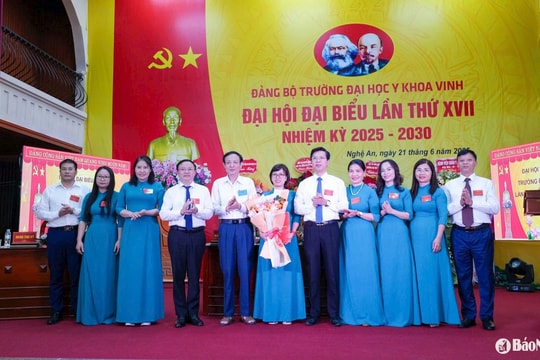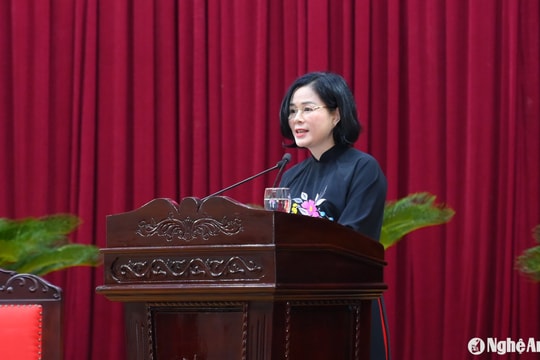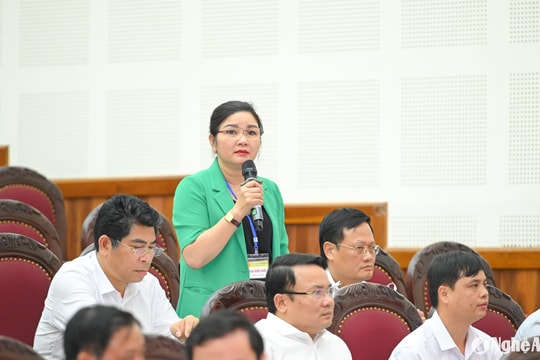Nghe An: Lack of human resources because doctors are not 'interested' in working at commune health stations
(Baonghean.vn) - This is one of the reflections of voters who are leaders, doctors and civil servants of the Nghi Loc district health sector to the National Assembly and the Provincial People's Council at the thematic voter contact conference after the 4th session of the 15th National Assembly and before the 11th session of the 18th Provincial People's Council taking place on the morning of November 26.
Attending the meeting with voters were Ms. Vo Thi Minh Sinh - Member of the Provincial Party Standing Committee, Chairwoman of the Provincial Fatherland Front Committee, member of the 15th National Assembly, member of the 18th Provincial People's Council; and Mr. Nguyen Cong Van - Vice Chairman of the Veterans Association of Nghi Loc district; Vo Manh Ha - Party Secretary, Chairman of the People's Committee of Nghi Phong commune, member of the Provincial People's Council of Nghi Loc Delegation. Also attending the meeting with voters were representatives of leaders of departments, branches and sectors at the provincial and Nghi Loc district levels.
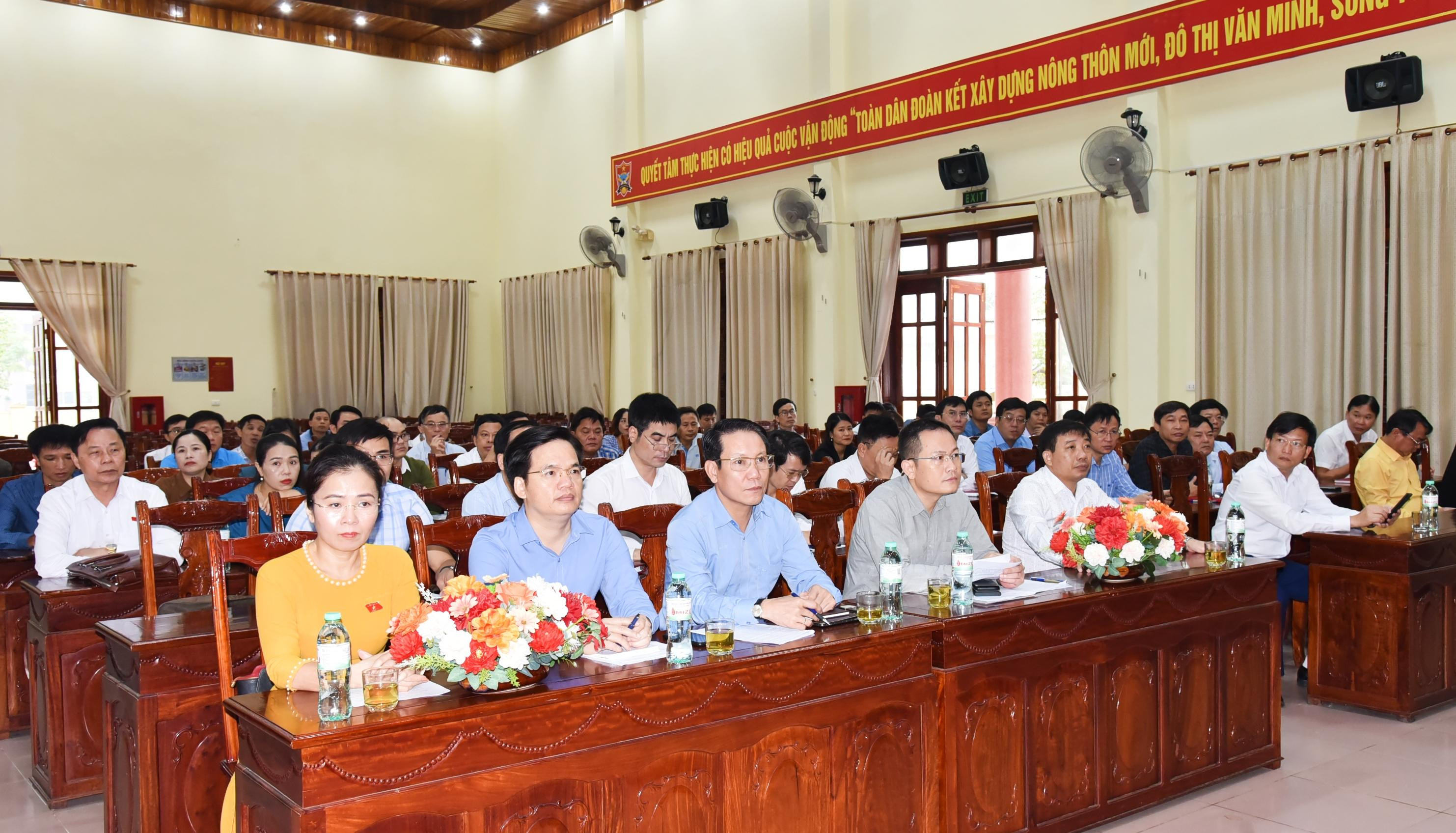 |
Delegates attending the voter meeting. Photo: Thanh Le |
Voters listened to National Assembly deputies quickly announce the results of the 4th session of the 15th National Assembly; Provincial People's Council deputies informed about the agenda of the 11th session of the 18th tenure.
Concerns about attracting human resources
At the conference, there were 14 comments related to groups of issues on mechanisms, policies, human resources of health stations, management of medical practice; autonomy policy, allowance regime for health sector staff,...
Reflecting his thoughts and aspirations to the National Assembly delegates and the Provincial People's Council, Mr. Le Doan Hung - Deputy Director of Nghi Loc District Medical Center expressed difficulties in attracting human resources for the health sector.
Mr. Hung said that Nghi Loc district currently has 25 doctors/29 health stations, 30 nurses, and is still short of 4 doctors. In the next 3-5 years, 8 doctors will retire, so the number of doctors is very short. Meanwhile, the recruitment of doctors to work at health stations is facing many difficulties due to low salaries and allowances.
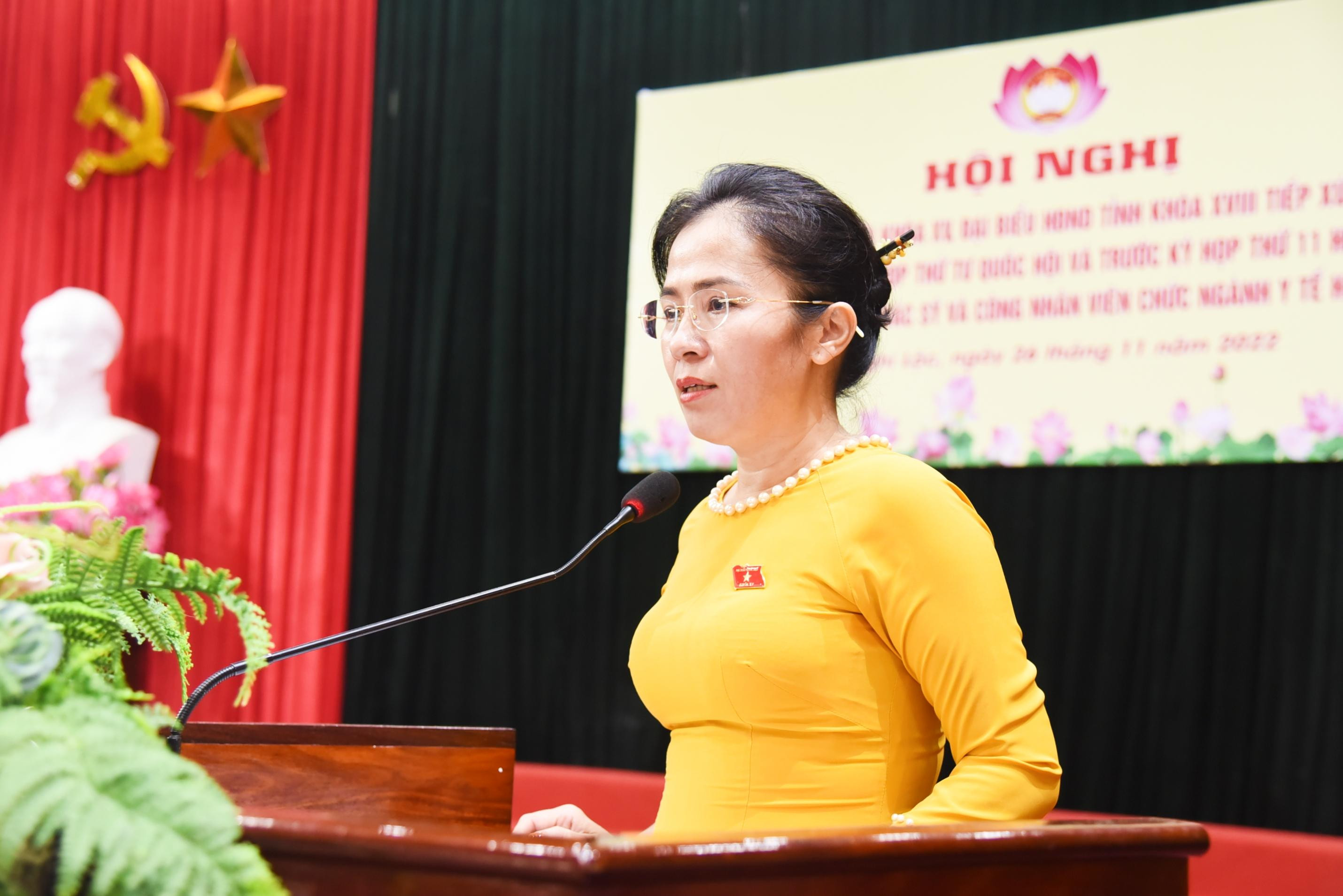 |
Delegate Vo Thi Minh Sinh - Chairwoman of the Provincial Fatherland Front Committee announced the results of the 4th Session of the 15th National Assembly. Photo: Thanh Le |
Mr. Hung cited that previously, doctors who came to work at commune and town health stations in the delta region were supported with funding equivalent to 16 times the minimum wage according to Decision No. 17/2012/QD - UBND dated February 17, 2012 of the Provincial People's Committee stipulating a number of policies for developing public health human resources in Nghe An province.
However, since 2015, this regime no longer exists. Therefore, it is very difficult to recruit and meet the target of 100% of health stations, communes and towns having doctors working.
"We propose that all levels and sectors study a policy to attract doctors to work at commune and town health stations in the delta region," Mr. Hung proposed.
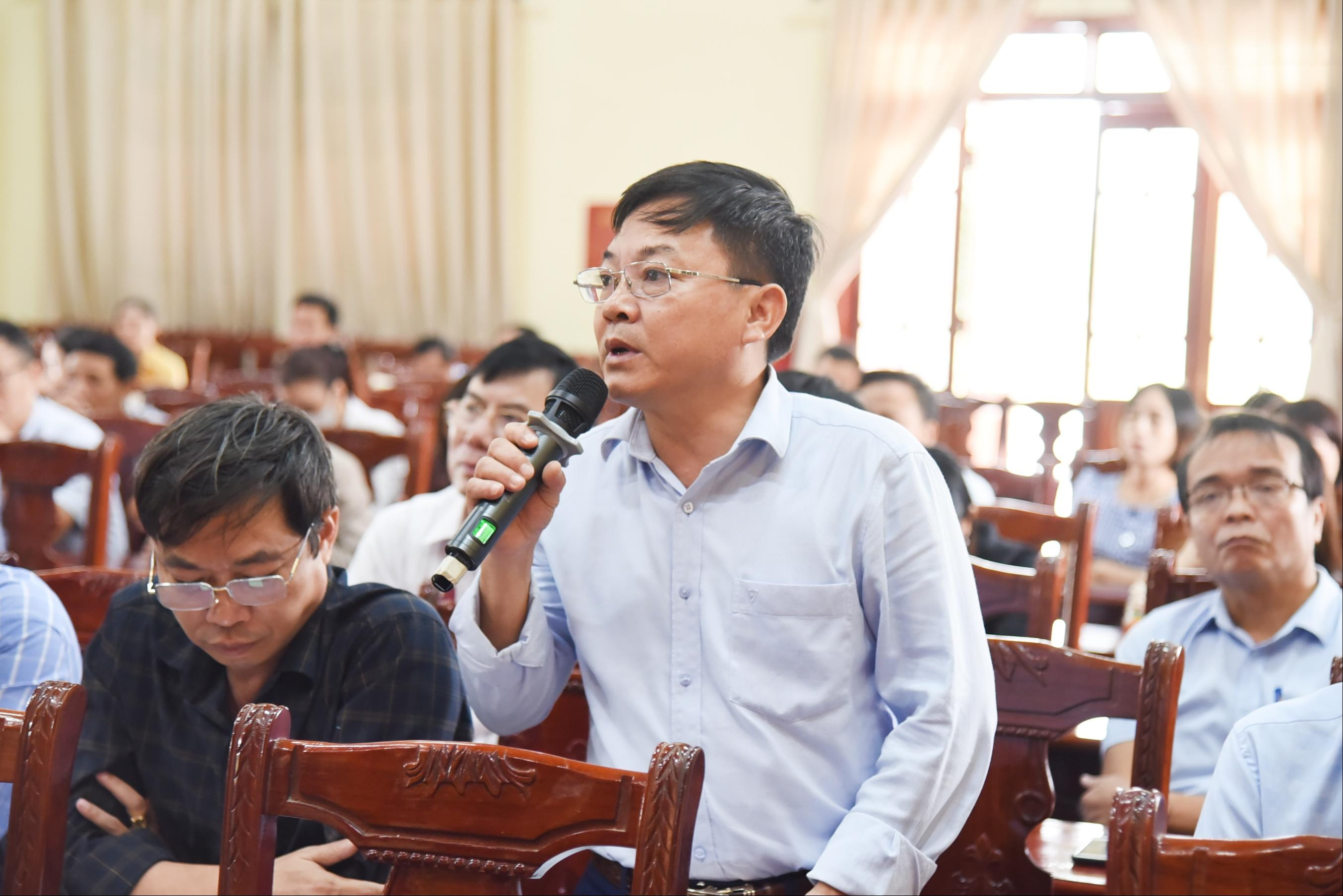 |
Mr. Le Doan Hung - Deputy Director of Nghi Loc District Medical Center proposed a policy to attract human resources for the commune health station. Photo: Thanh Le |
Regarding the training and professional development of grassroots medical staff, Mr. Hung informed that currently, in Nghi Loc district, there are 30 officers who are general practitioners and traditional medicine practitioners, many of whom are of the right age and wish to continue their studies to become doctors.
However, to be trained as a doctor at Vinh Medical University, one must pass the national high school exam and the training period is 6 years, so it is very difficult for doctors who want to study to become doctors.
"The wish of these officials is to propose that relevant levels and sectors reduce the time for joint training to 4 years like other medical schools and have a separate admission mechanism for those who are already working," Mr. Hung expressed.
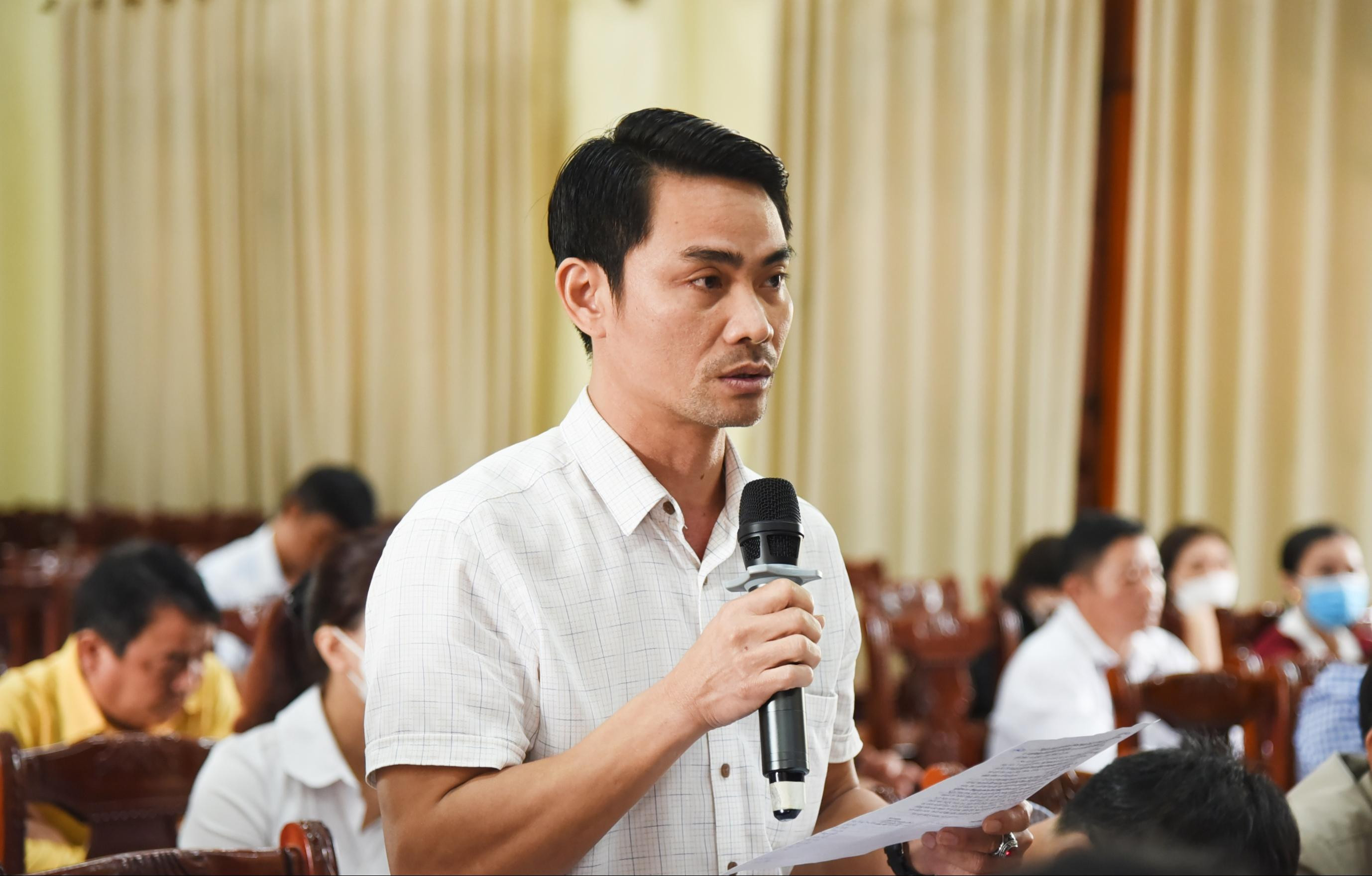 |
Mr. Nguyen Van Truyen - Head of Nghi Hoa Commune Health Station reflects on the construction of pharmacy counters at commune and town health stations. Photo: Thanh Le |
Mr. Tran Van Tam - Head of Nghi Cong Nam Commune Health Station reflected that the training of family doctors for some health stations is not comprehensive. Many trained doctors do not have the conditions to work, leading to waste of human resources and expertise will also be lost.
"It is recommended that all levels and sectors have appropriate support mechanisms for doctors trained as family doctors to work; support the training of specialist doctors for health stations; support seniority in the health sector; and support additional equipment and machinery for health stations to ensure primary health care for the people," Mr. Tam suggested.
Problems in bidding
Reflecting on the difficulties and obstacles in bidding for medical supplies, Ms. Nguyen Thi Nhung - an officer of Nghi Loc District General Hospital said that the reason is that there are still many steps, many documents, and many procedures to go through. Some contents in bidding for medical equipment at public health facilities are not clearly regulated in the law.
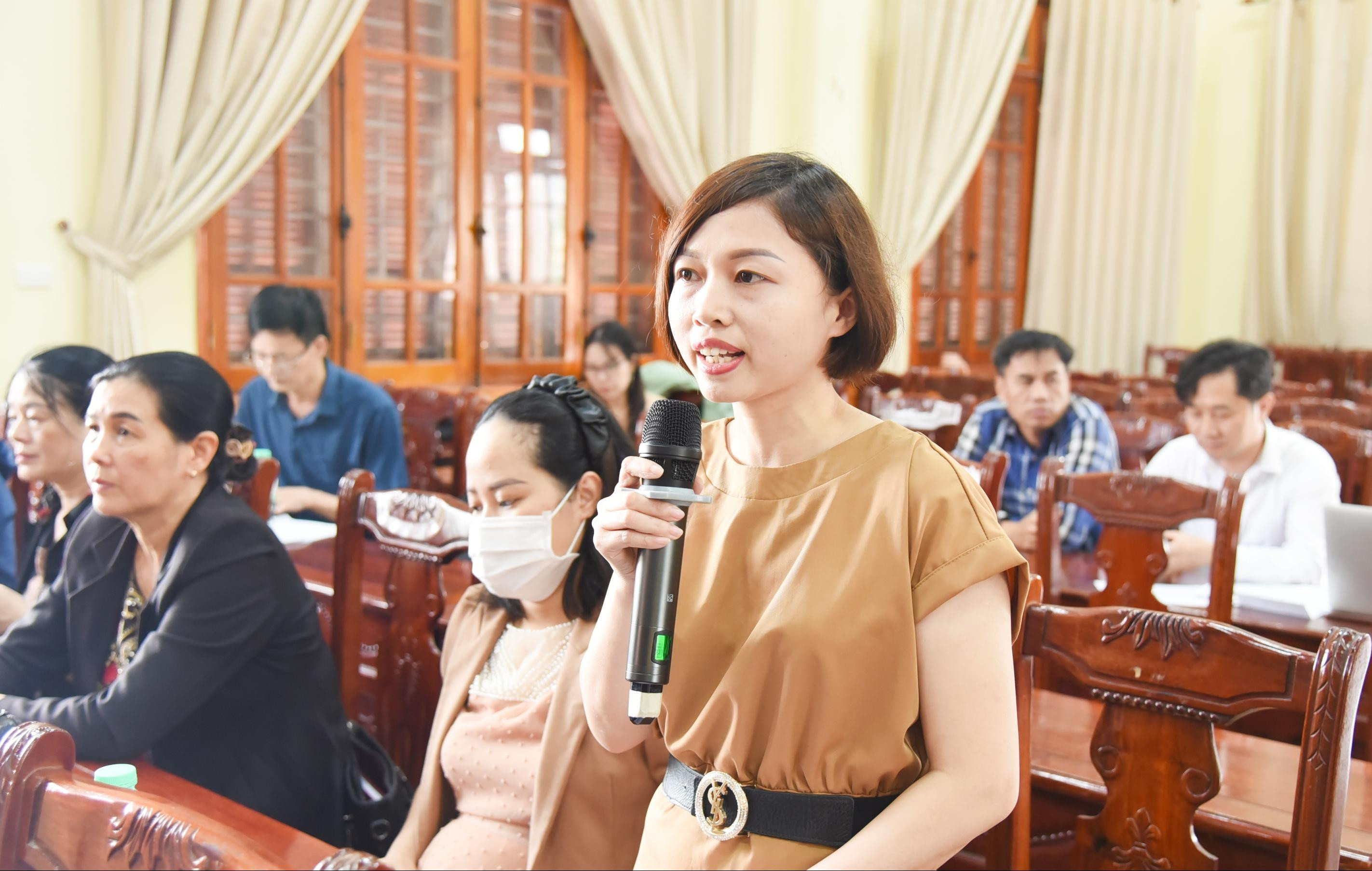 |
Voter Nguyen Thi Nhung - Nghi Loc District General Hospital reflects on shortcomings related to the bidding of medical supplies. Photo: Thanh Le |
Drug bidding must go through many stages, many different departments and specialized offices. In addition to ensuring expertise, health sector staff must focus on purchasing work, while many staff have not received specialized training in bidding and have to work overtime and hold other positions.
As a district hospital, the number of essential items used is small, leading to small-scale bidding, and contractors are not very "interested". They tend to prioritize units with larger quantities and larger scale to bid. Therefore, at Nghi Loc District General Hospital, there are items that no contractors bid for, especially emergency drugs.
"I propose that the National Assembly give opinions to soon amend relevant legal documents and propose timely solutions to remove difficulties and obstacles in procurement bidding, to avoid shortages of drugs, medical supplies, and chemicals for patients," Ms. Nhung proposed.
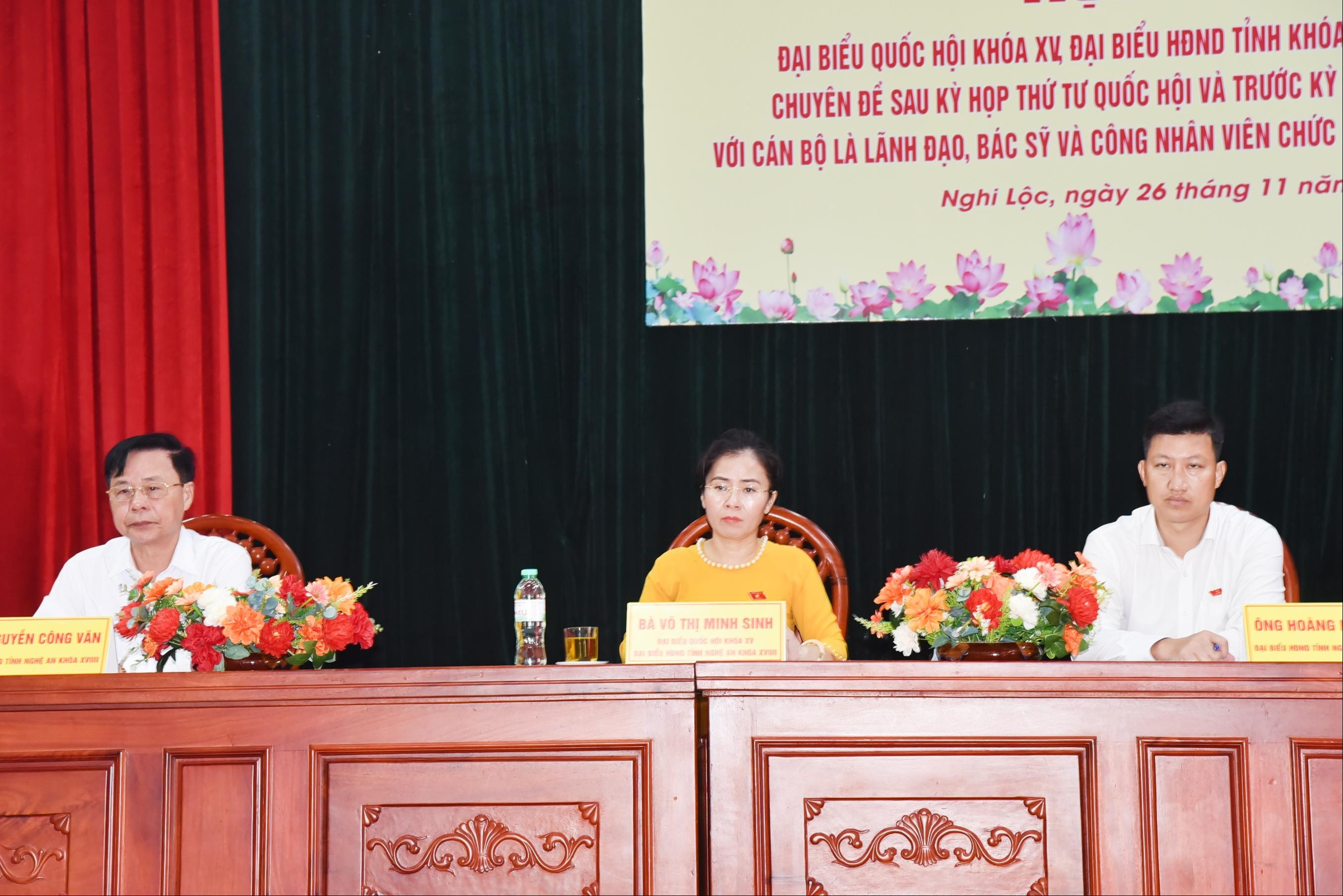 |
National Assembly and Provincial People's Council delegates receive voters' opinions. Photo: Thanh Le |
In addition, voters' opinions also reflected issues related to the payment of social insurance technical services, treatment regimes for village and hamlet health care; adding more drugs to health insurance for patients at commune health stations; supporting investment in infrastructure for commune and town health stations; socialization in the health sector; management of private medical and pharmaceutical practices; construction of drug counters at commune health stations; activities of autonomous hospitals in group 2 wishing to pay salaries according to job positions to retain qualified and professional doctors, etc.
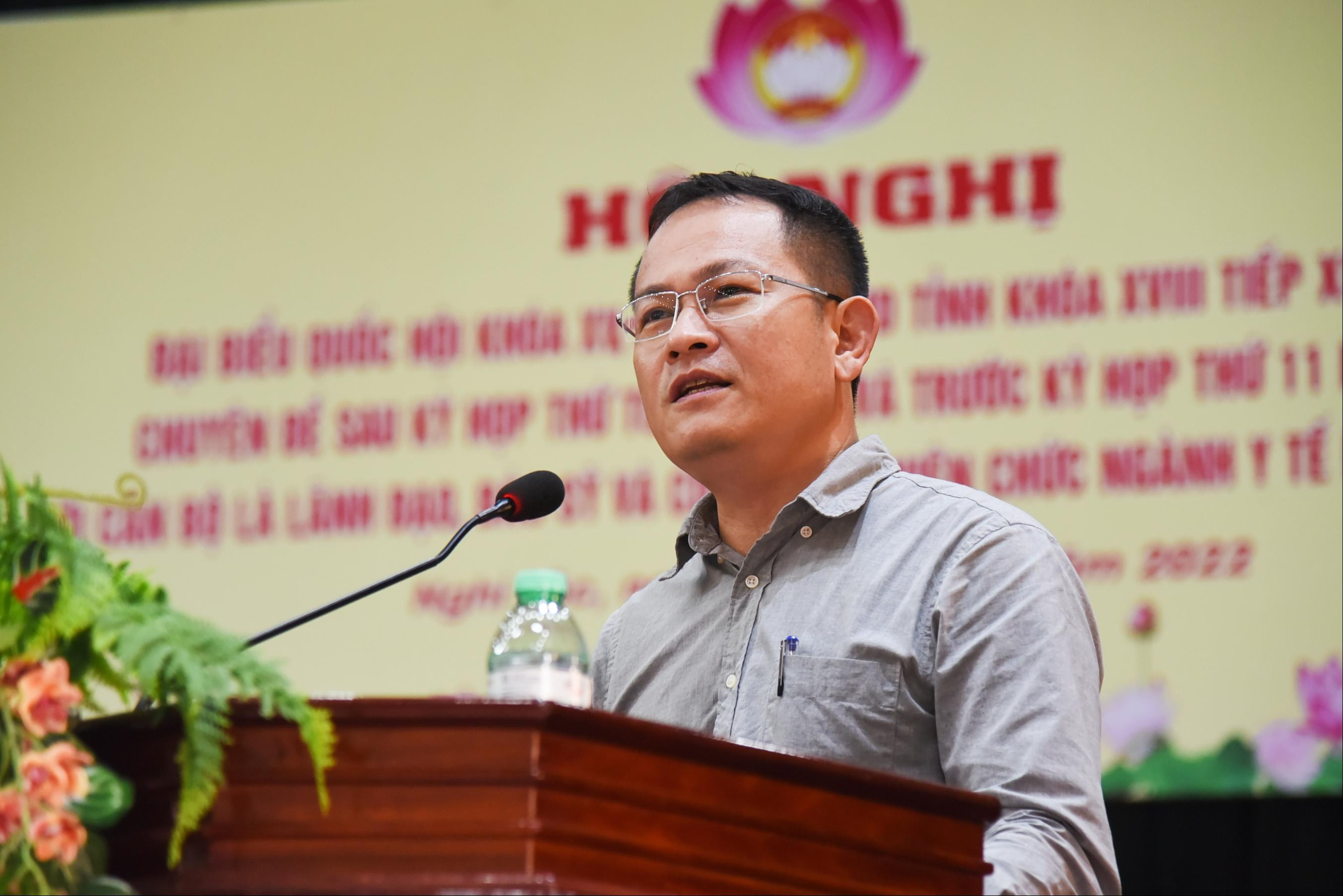 |
Mr. Nguyen Huu Le - Deputy Director of the Department of Health clarified voters' opinions and recommendations. Photo: Thanh Le |
Receiving and listening to the aspirations of health sector officials and employees in Nghi Loc district, on behalf of the National Assembly delegates and the Provincial People's Council, Ms. Vo Thi Minh Sinh - Chairwoman of the Provincial Fatherland Front Committee shared the difficulties; acknowledged and appreciated the silent contributions and sacrifices of officials working in the health sector in the past time.
Clarifying the voters' suggestions, delegate Vo Thi Minh Sinh emphasized that the Provincial National Assembly Delegation and Provincial People's Council delegates will receive and synthesize practical opinions from the practical activities of officials working in the health sector to contribute to amending the Law on Medical Examination and Treatment; propose recommendations to the Provincial People's Committee regarding the regime and policies under its authority for officials and employees working in the health sector.

